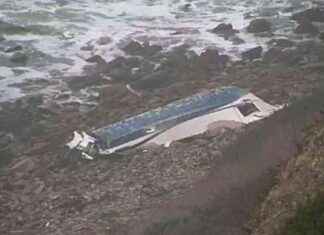The approval of the Amnesty Law, the tense relationship between the Government and its partners with the judges and the blockade of the Judiciary are issues that orbit the Executive and dominate the political debate in Spain, but also in Europe. The focus that Brussels has on these issues increases the clash and tension between the Government and the PP. Questions, opinions, ratings, criticisms… travel from Madrid to Brussels and vice versa. While the Commissioner for Justice, Didier Reynders, has a keen eye, the president of the European Commission, Ursula von der Leyen, avoids the issue and chooses not to assess the situation of the rule of law in Spain.
The European capital has hosted the celebration of a new European Council, at the end of which Pedro Sánchez has appeared, along with Von der Leyen and the president of this body, Charles Michel. On the table are issues such as the green light for the accession negotiations of Ukraine and Moldova; Europe’s position and attitude towards the war in Israel and Hamas; the EU budget negotiation; and also the situation of the rule of law in Spain. Taking advantage of the presence of the two leaders of the European institutions, the question was asked about whether there is concern in Europe with this matter, framing it in that there are MEPs from the PP who compare the situation of our country with that of Poland or Hungary.
Institutionality. More than ever. Correction and measured words. Von der Leyen, in her role as president of the Commission, has opted for the most absolute formality. “For the 27 members, our job is to deal with different files to make sure that the rules are respected. That applies to the 27 Member States. We trust the 27 States, and that is the basis of the work and cooperation we develop together “.
The representative of Europe avoided any words that could cause a conflict not only with the party to which she belongs, the European PP, but with any of the countries that are part of the Commission. A reflection that tipped the balance towards Spain being or not the same as Poland and Hungary would have started a fire. She avoided criticism of Spain, but also flattery.
A path that the president of the European Council, Charles Michel, also followed, when he was questioned about whether the aforementioned matters – amnesty, blockade of the Judiciary – if this “noise” in Spain could harm the balance of the Spanish presidency. of the EU and the image of Sánchez. “The European project is based on respect for the sovereignty of the member states and trust in the democratic institutions of the states.”
A few days ago, Félix Bolaños, Minister of the Presidency, Justice and Relations with the Courts, visited Brussels to meet with Vice President Vera Jourova and Commissioner Didier Reynders to talk about the Amnesty Law and the renewal of the CGPJ. He then stated, regarding forgiveness for those involved in the process: “There is zero concern in the Commission; zero; none.” But just a few hours later, the Commission corrected his words and denied having expressed “zero concern.” “The analysis is still underway, therefore in that sense the commissioner has not said for now that the amnesty law does not raise concerns,” said Justice spokesman Christian Wigand.
The one who did get wet and did not want to waste his opportunity to launch a new blow to the PP was Sánchez. The President of the Government has secretly accused the leader of the European PP, Manfred Weber, of attacking them “with fallacious arguments from the Spanish conservative opposition”, in reference to the Spanish PP. Sánchez and Weber starred in a tough debate this week in Strasbourg, in the European Parliament, regarding the Amnesty Law.
And, in that strategy in which the Government and the PP are immersed of linking the popular ones with the extreme right, a message that they want to be the one that has a bearing in the face of the next European elections, he wanted to recall a few words from the new president from Poland, Donald Tusk, and former head of the European PP: “The problem with flirting with the extreme right is that you start to think the same as them.”





